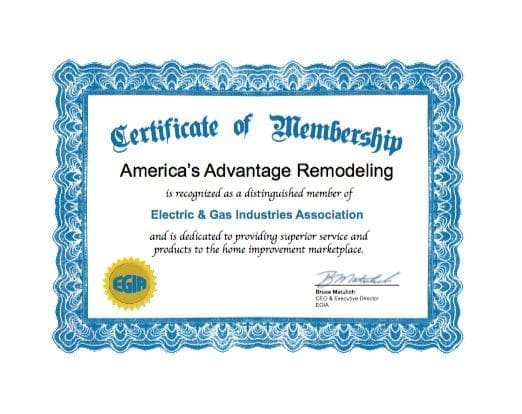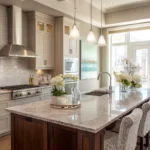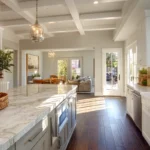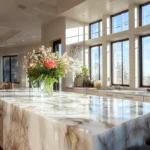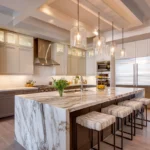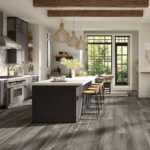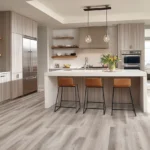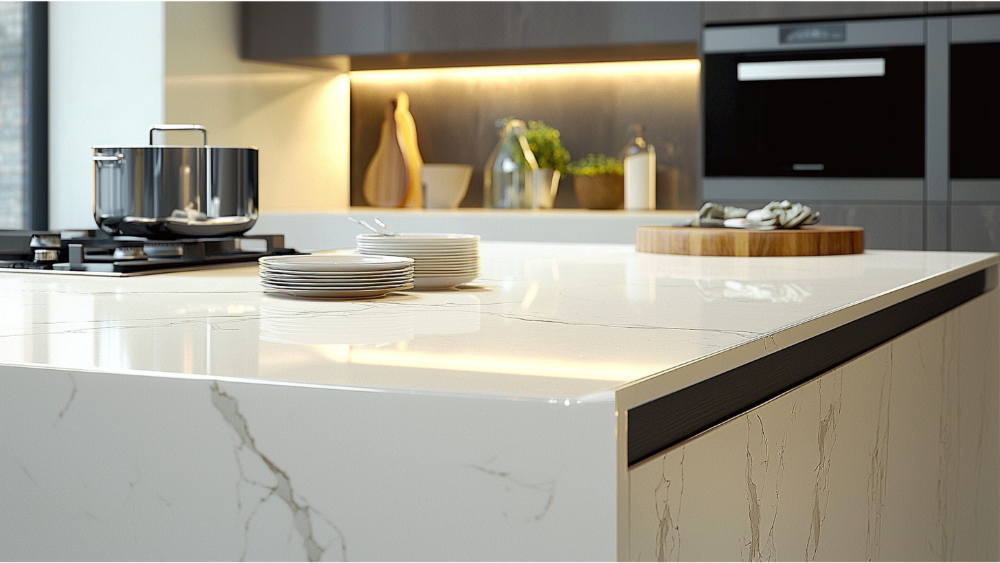
Quartz countertops have become a popular choice for homeowners due to their durability, elegance, and low maintenance requirements. Made from engineered stone, they combine natural quartz with resins and pigments to create a non-porous surface that resists stains and scratches. Their wide range of colors and patterns makes them a versatile option for any kitchen or bathroom design.
What Are Quarts Countertops?
While quartz countertops are often mistaken for natural stone, they are actually engineered surfaces that mimic the appearance of other natural stone countertops such as granite or marble. Composed of approximately 90% natural quartz combined with resins and pigments, durable quartz countertops offer exceptional strength and functionality.
Unlike porous natural stone options, quartz surfaces are stain-resistant due to their non-porous composition, making them an ideal choice for high-traffic areas like kitchens and bathrooms. This combination of beauty and practicality sets quartz countertops apart from other materials in both form and function.
Advantages of Quartz Countertops
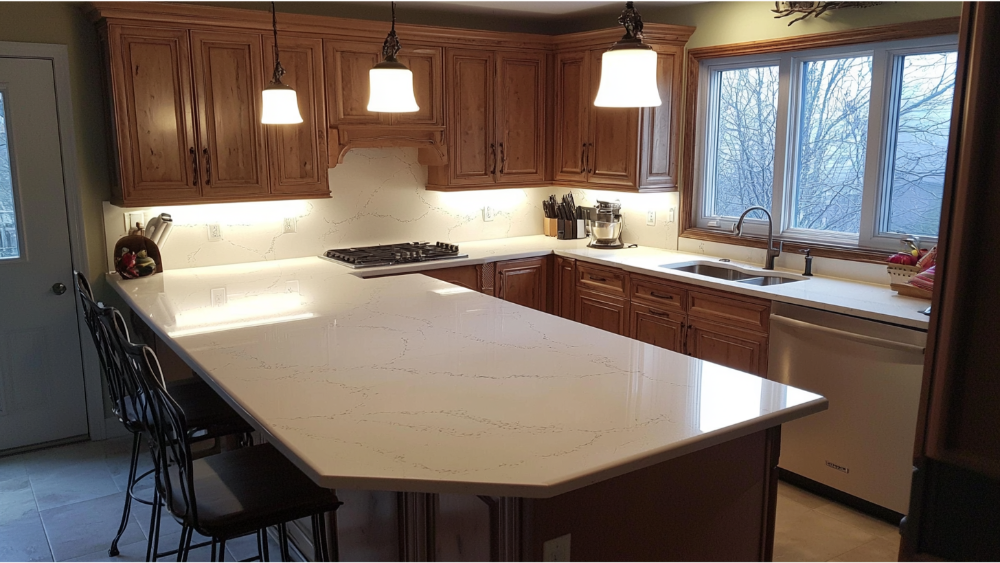
Exceptional Durability
Quartz countertops are known for their remarkable durability, which makes them one of the most preferred countertop materials. They resist chipping, cracking, and scratching, ensuring a long-lasting surface for your kitchen or bathroom. Their engineered construction makes them harder than most natural stones like marble or granite. This level of strength means they can withstand the demands of daily use in high-traffic areas like kitchens and bathrooms.
Heat Resistant
One of the key quartz countertops pros is their impressive heat resistance. While it is always safer to use trivets or pads when placing hot cookware on any surface, quartz can handle moderate heat exposure without damage. This characteristic helps protect your countertop from warping or discoloration caused by everyday kitchen activities. However, it is advised to avoid direct, prolonged contact with heat to ensure the material’s longevity.
Non-Porous Surface
Unlike many natural countertop materials, quartz features a non-porous surface that prevents liquid absorption. This quality makes quartz countertops highly resistant to stains from substances like wine, coffee, and oil. The non-porous nature also inhibits the growth of bacteria, promoting a more hygienic environment, especially in kitchen countertops. With minimal maintenance, quartz stays polished and clean, even with heavy use.
Low Maintenance
Quartz countertops require little upkeep, making them a hassle-free choice for busy households. Unlike granite or marble surfaces, quartz doesn’t need sealing, polishing, or special cleaning products. A simple wipe with soap and water is enough to keep them looking pristine. This ease of care makes quartz an ideal option for homeowners seeking beauty without high maintenance.
Wide Range of Colors and Patterns
Quartz countertops come in a vast array of colors and patterns, giving homeowners unlimited design possibilities. They can mimic the look of natural stones like marble, offering an elegant aesthetic without the accompanying maintenance. From sleek modern tones to more classic or rustic designs, there’s a quartz option for every style. The variety also allows them to seamlessly complement any kitchen or bathroom décor.
Consistent Appearance
Unlike natural stone materials, which may have irregularities or color variations, quartz offers a smooth and uniform appearance. This consistency makes it easier to create a cohesive look across large surfaces. For homeowners who desire a polished and refined aesthetic for their kitchen countertops, quartz delivers exceptional results. It avoids the unpredictability of natural stone while still providing a luxurious look.
Stain Resistance
Thanks to its non-porous composition, quartz is naturally stain resistant, making it one of the best options among countertop materials. Spills are easy to clean and won’t penetrate the surface, keeping the countertop looking new for years. This quality is particularly useful in kitchens where spills from cooking oils, sauces, or beverages are common. Its stain resistance makes it a functional and visually appealing choice.
Eco-Friendly Option
Quartz countertops are also an environmentally friendly choice, as they are made using abundant natural quartz combined with recycled materials. Many manufacturers prioritize sustainable practices during production, which helps reduce their environmental impact.
For homeowners looking to make eco-conscious decisions without sacrificing quality or aesthetics, quartz provides a responsible yet stylish solution. Their durability also means fewer replacements over time, reducing waste.
Comparison of Quartz Countertops to Other Materials
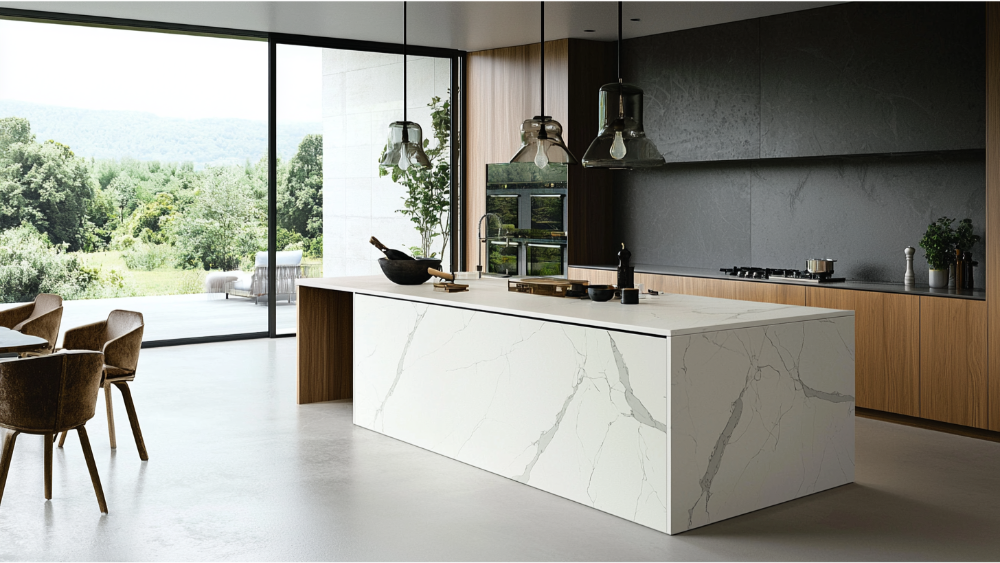
Quartz vs. Granite
Granite is a natural stone celebrated for its distinctive, unique patterns, while quartz countertops provide a more uniform and consistent look. Although granite is extremely durable, it is a porous material that needs regular sealing to protect against stains and bacterial buildup. In contrast, quartz countertops are non-porous, made by combining quartz particles with resin, and do not require sealing.
However, quartz has its downsides, including being less resistant to direct heat. Placing a hot pan on a quartz surface can cause damage, which isn’t as much of a concern with granite. In terms of cost, basic granite options are often slightly cheaper than quartz, though high-end granite can be more expensive. When choosing between the two, think about quartz’s low-maintenance convenience and design flexibility versus granite’s natural, rugged beauty.
Quartz vs. Marble
Marble is prized for its timeless elegance and luxurious appeal, featuring unique veining that is nearly impossible to replicate. However, marble is softer than quartz, making it more prone to scratches, etching, and stains, particularly in high-traffic areas like kitchens.
Quartz countertops, while slightly more synthetic in appearance, excel in practicality due to their superior durability and resistance to liquid damage. Marble also requires consistent sealing and careful cleaning to maintain its beauty, which adds to the overall cost of ownership. If you’re weighing whether quartz countertops are worth it, the decision often comes down to choosing between aesthetic preference and functional durability.
Quartz vs. Laminate
Laminate is one of the most budget-friendly countertop materials available, often costing significantly less per square foot than quartz countertops. However, its lower durability, susceptibility to scratches, and lack of heat resistance make it less suitable for long-term use in busy kitchens. Quartz counters not only offer superior performance but also a more luxurious appearance, mimicking high-end natural stones like granite or marble.
While laminate may be ideal for low-budget renovations, quartz countertops are worth the investment for homeowners seeking a balance between durability and aesthetics. If long-term value and resale appeal are priorities, quartz outshines laminate in most aspects.
Quartz vs. Solid Surface (Corian)
Solid surface materials like Corian are touted for their seamless look and ability to integrate sinks directly into the countertop. However, they are generally softer and more prone to scratches and heat damage than quartz countertops. Quartz counters, on the other hand, provide greater hardness and long-lasting durability, making them a better choice for high-use areas.
Solid surface is often less expensive than quartz per square foot, but the difference may be negligible when factoring in quartz’s low maintenance and longevity. For anyone questioning whether quartz countertops are worth the additional upfront cost, its superior performance and lifespan often make it more appealing.
Quartz vs. Concrete
Concrete countertops are highly customizable and can be tailored to match unique design requirements, offering an industrial and modern look. However, their porous nature requires regular sealing and maintenance, and they are prone to cracking over time. While concrete countertops can be a great DIY project, their porous surface requires frequent upkeep. Quartz counters eliminate these issues with their non-porous surface and engineered durability.
Concrete is often similarly priced to quartz countertops per square foot when factoring in customization, but its higher maintenance demands can make it less practical for some households. When evaluating whether quartz countertops are worth it, their low upkeep and consistent reliability often give them an edge over concrete.
Frequently Asked Advantages of Quartz Countertops Questions
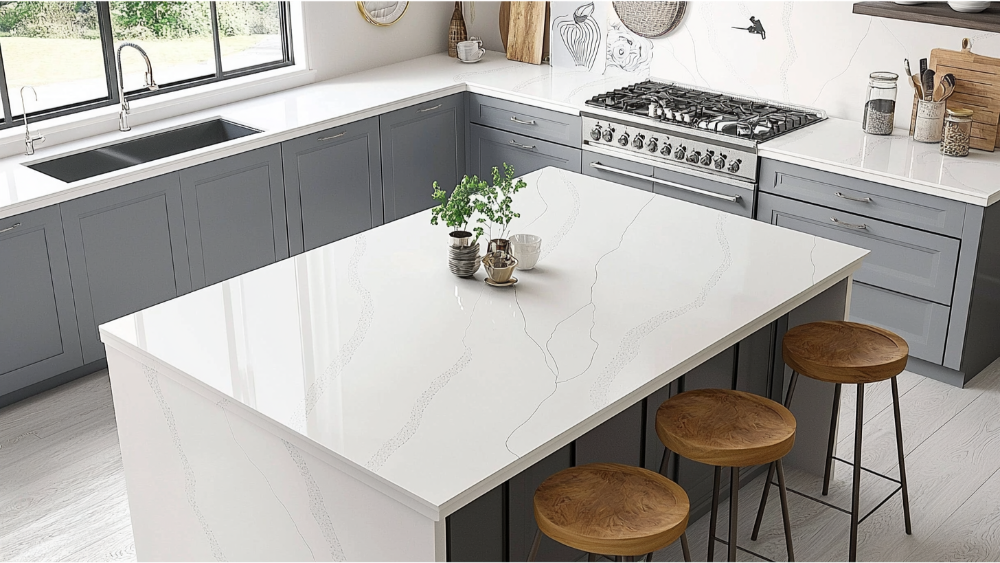
What is Special About Quartz Countertops?
Quartz countertops stand out due to their unique combination of beauty, durability, and low maintenance requirements. Unlike natural stone, quartz is an engineered material that combines natural quartz crystals with resin and pigments, creating a surface that is both stunning and highly resilient. This construction gives quartz countertops a non-porous quality, ensuring they are resistant to stains, bacteria, and moisture, which makes them perfect for kitchens and bathrooms.
Another remarkable feature of quartz countertops is their design versatility. Available in a wide array of colors, patterns, and finishes, quartz can mimic the appearance of natural stones like marble and granite or take on modern, bold designs that suit contemporary styles. The uniformity of quartz allows for consistent designs across the entire surface, eliminating imperfections or irregularities often found in natural stones. These characteristics make quartz countertops a truly exceptional addition to any home.
Why Do People Prefer Quartz Over Granite?
There are several reasons why homeowners often prefer quartz countertops over granite. One of the primary factors is maintenance. Quartz is a non-porous material, meaning it does not require regular sealing like granite does. This makes quartz significantly easier to clean and maintain, as it resists stains, bacteria, and moisture effectively. For individuals who prioritize hygiene and convenience, quartz’s low maintenance is a compelling advantage.
Another reason is its consistent appearance. While granite offers unique, natural patterns, these can sometimes include irregularities or color variations that don’t suit everyone’s taste. Quartz, being an engineered material, provides a uniform look that appeals to those seeking a sleek and cohesive design. Quartz countertops come in a wide range of colors and styles, allowing homeowners greater flexibility to match their decor preferences.
What Is a Quartz Countertop Worth?
The value of a quartz countertop goes beyond the initial price per square foot, as it is an investment in both the functionality and aesthetics of your home. On average, quartz countertops can cost between $50 to $150 per square foot, including installation, depending on the brand, design complexity, and additional features like edge profiles or cutouts. While the upfront cost may seem higher compared to materials like laminate or solid surface, the durability and low maintenance of quartz countertops can result in cost savings over the long term.
Quartz countertops’ worth also lies in their ability to add resale value to your home. Their premium appearance and performance appeal to potential buyers, often making the home more attractive on the real estate market. Additionally, the wide array of available colors and patterns ensures that quartz countertops fit seamlessly into various design styles, providing timeless elegance that doesn’t require frequent updates or replacements.
Conclusion
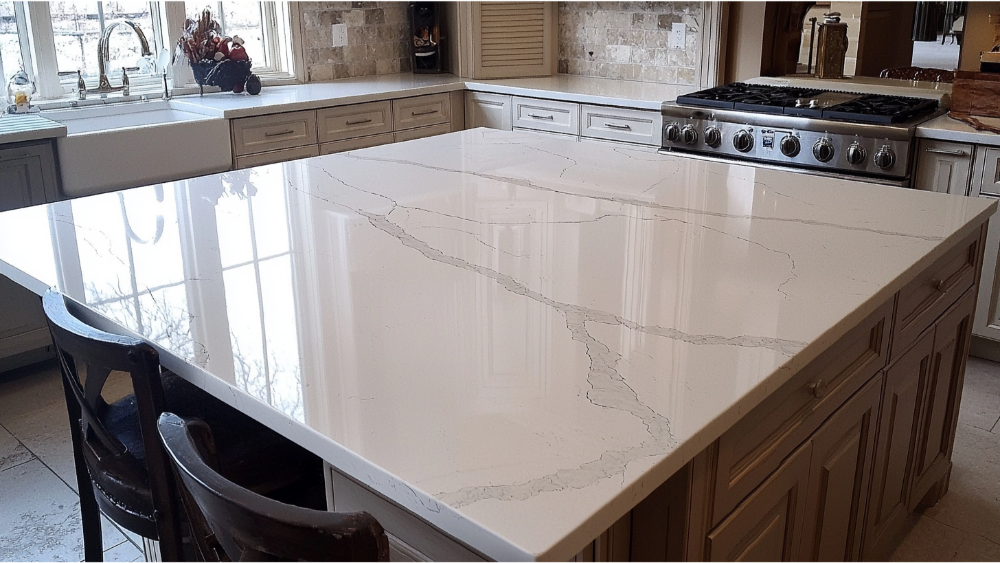
Quartz countertops offer an exceptional balance of durability, aesthetics, and low maintenance that makes them a standout choice for any home. Whether you’re comparing them to laminate, solid surface, concrete, or even granite, quartz consistently proves to be a worthwhile investment. Its non-porous nature, resistance to stains and bacteria, and range of design options make it both practical and beautiful, ensuring it meets the needs of modern households.
While the upfront cost may be higher than some alternative materials, the long-term value and appeal of quartz countertops are undeniable. For homeowners seeking a premium, reliable, and visually striking surface, quartz countertops remain one of the best options on the market.
CONTACT US
Our Services
Areas We Serve
Certificate
